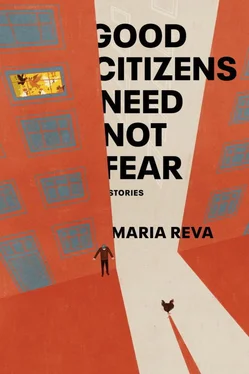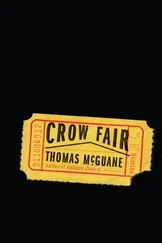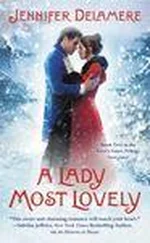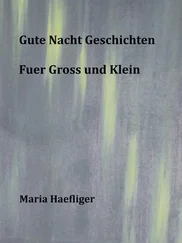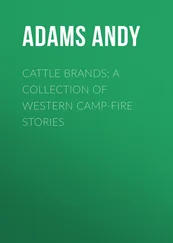Maria Reva - Good Citizens Need Not Fear - Stories
Здесь есть возможность читать онлайн «Maria Reva - Good Citizens Need Not Fear - Stories» весь текст электронной книги совершенно бесплатно (целиком полную версию без сокращений). В некоторых случаях можно слушать аудио, скачать через торрент в формате fb2 и присутствует краткое содержание. Город: New York, Год выпуска: 2020, ISBN: 2020, Издательство: Doubleday, Жанр: Современная проза, humor_satire, на английском языке. Описание произведения, (предисловие) а так же отзывы посетителей доступны на портале библиотеки ЛибКат.
- Название:Good Citizens Need Not Fear: Stories
- Автор:
- Издательство:Doubleday
- Жанр:
- Год:2020
- Город:New York
- ISBN:978-0-38554-529-7
- Рейтинг книги:3 / 5. Голосов: 1
-
Избранное:Добавить в избранное
- Отзывы:
-
Ваша оценка:
- 60
- 1
- 2
- 3
- 4
- 5
Good Citizens Need Not Fear: Stories: краткое содержание, описание и аннотация
Предлагаем к чтению аннотацию, описание, краткое содержание или предисловие (зависит от того, что написал сам автор книги «Good Citizens Need Not Fear: Stories»). Если вы не нашли необходимую информацию о книге — напишите в комментариях, мы постараемся отыскать её.
Good Citizens Need Not Fear: Stories — читать онлайн бесплатно полную книгу (весь текст) целиком
Ниже представлен текст книги, разбитый по страницам. Система сохранения места последней прочитанной страницы, позволяет с удобством читать онлайн бесплатно книгу «Good Citizens Need Not Fear: Stories», без необходимости каждый раз заново искать на чём Вы остановились. Поставьте закладку, и сможете в любой момент перейти на страницу, на которой закончили чтение.
Интервал:
Закладка:
The girl leaned in through the open passenger window. His cigarette hung from her mouth. She took a long, delicious pull before exhaling politely away from the car.
“I have more.” He brandished the box, tapped the cartoon rocket shooting across its front. He hated himself for stooping so low.
At last the girl took the front seat. She sat her bundle on her lap.
During the drive, all conversation remained determinedly one-sided. Mostly, Konstantyn pointed at forest and meadow, saying, “See that big oak.” “See that patch of daisies.” “See those mushrooms, very poisonous.” The girl kept her eyes on the muddy road.
He tried to ignore the smell of her, sweet and rank, like barley fermenting in urine. Keeping one hand on the wheel, he lit a second cigarette, inhaled. “Where’d you pick up the habit? From the older children?”
She shook her head.
“From the sanitarki ?”
She nodded.
“You can talk to me. I don’t bite.”
She shot him a look: I do.
Konstantyn laughed; the girl did not. A rabbit dashed across the road. Her name came back to him. “What happened to your lip, Zaya?”
She said nothing.
“A bad fall,” he guessed.
She shook her head.
“Thorny branch.”
No.
“Fishhook.”
No.
“Angry bird.”
She took another pull. No.
“A three-headed dog you fought off valiantly.”
No response.
“I thought so,” said Konstantyn.
“An old baba sewed it up.” The girl slurred her words. “She made leather boots.”
Konstantyn winced. He didn’t want to know more, but after a moment, he did. “This wasn’t at the internat ?”
She shook her head again. “I ran away, she took me in. Her hut burned down, she brought me back.”
The forest receded. They drove between the sunflower fields in silence. Soon Kirovka welcomed them with its bent metal sign framed by rusty braids of wheat. Konstantyn felt lighter. At least the girl could speak.
That night Konstantyn woke to a pinprick of orange light, felt nicotine breath on his face. He made out the girl’s silhouette, bent over him. He jolted upright.
“Keep sleeping,” she whispered.
He flicked on his reading lamp. No trace of Orynko in this girl’s face. This stranger was wearing his wife’s billowy dress shirt, which he’d lent her the evening before. She had brought no clothes of her own, had told him that her bundle contained only a saint, which had originally come with a hat before one of the other orphans stole it. A doll, not a saint, he assumed she’d meant.
“How long have you been sitting there?” he asked.
“Never seen a man sleep.” She crossed one bare leg over the other, and stared at his mouth. “Odd, what lips are. Where you turn inside out.”
Konstantyn tucked his lips between his teeth, protectively. The calm of her voice terrified him. She seemed capable of anything: she might break into dance or smash his skull with a skillet. He thought of the boot maker who had taken her in, could imagine the seed of the catastrophe: the girl gazing at a candle with the same cold fascination, wondering how the flame would look if it engulfed an entire house.
After that night he slept fitfully. He would wake up, listen for the girl’s breathing, make sure that the breathing was at a suitable distance, that it came from the cot on the other side of the room, on the other side of the linen sheet he’d hung between them.
Of course, Konstantyn hadn’t forgotten about the original Miss Kirovka. An encyclopedic search proved that the Thermometric Academy did indeed exist, in Norgorsk, deep within the Arctic Circle; the town was known for its smelting factory, which colored the snow pink, yellow, and black, and scented the air with chlorine and sulfur. In the early mornings, while the orphan slept, he wrote letters to Irina Glebovna and to the Chairman of Council of Ministers and his First Deputy Chairmen, State Committee Chairmen, and select members of the Presidium, calling for the beauty queen’s repatriation. He’d received no response yet.
As for Miss Kirovka’s double: before he could begin training her for the speech, the interview, the gown round, the bathing suit round—the radio announcement had not mentioned a talent round—the girl had to be caught up on the basics of civilized living. She never closed the bathroom door and he’d caught her squatting atop the toilet, feet on the seat. She balked at the idea of leg and armpit hair removal, saying that a buzzed head was enough to keep the lice away. She ate with agonizing slowness, inspecting each ingredient on her spoon with suspicion, yet she swallowed prune pits without a second thought. She feared the height of the balcony, and kept away from the windows. She slept with her dusty bundle at her side, refused to have it washed. She could recite the days of the week, but paid no heed to their order. If he thought he knew a subject, she probed him, out of curiosity or cruelty, until he reached the limits of his understanding. He could tell her about planets, how they were made of dirt or gas and moved in circles, but could not explain why they did so, only that gravity was involved. He couldn’t tell her if time had a shape, or if the present and future could exist at once. She wanted to learn how a plane flies; he wanted her to learn to wash herself.
It took Konstantyn the first full month to broach the subject of the pageant. He led her to the park, where they sat on a pair of truck tires painted with polka dots. She no longer glared at strangers as if she wanted to maul them, which was no small improvement. The bundle lay at her side, appearing even dustier than usual in contrast to the pin-striped work shirt she was wearing (Konstantyn’s). He divulged his plan: how she would be representing all of Ukraine as Miss Kirovka—more precisely, as Orynko Bondar, a girl who couldn’t attend herself, although no one would know the difference. All Zaya had to do onstage, apart from twirl around in a pretty gown, was unfurl the sash emblazoned with MISS KIROVKA—he would make the sash himself, in whichever color she wanted—and wear Miss Kirovka’s crown. An exact replica of the crown, rather. He told her about the judging panel of celebrated artists and Party members, about how every young woman dreamed of this kind of opportunity.
“I don’t dream of it.”
“Think of how pretty you’ll be.” He quickly added, “On top of how pretty you already are.”
She watched a sparrow bathe in a murky puddle.
“You’ll get to see Moscow. It’s a hundred times bigger than Kirovka.”
“This is why you came to the internat, ” she concluded. “Lucky me.”
He swept his arm around the park, which was empty save for a few young mothers walking their strollers. “The country needs you.”
The words had an effect on her, but not the one he’d intended. She stood up, and kicked the tire she’d been sitting on. “The sanitarki used to tell me, If you’re so unhappy, send a letter to Brezhnev. And then it was Andropov, then Chernenko. They kept dying and we kept dying and I kept writing letters. Send a pair of stockings. Send iodine. I waited—not even a letter back. And now the country needs me.” She pulled at the stiff collar of the work shirt, and set off in the direction of the apartment. He followed her, pleading. They were on the same side, he assured her, no one answered his letters either. But the girl marched on.
That night Konstantyn woke again. He listened for the girl’s breathing, but heard only silence. He poked his head over the hanging sheet. Both the girl and the bundle were gone. They weren’t in the kitchen or bathroom. He checked her cot again in the absurd hope he’d missed her the first time. He then stepped out onto the balcony, sick with panic. In the courtyard below, under the orange light of a streetlamp, he spotted the orphan squatting in an overgrown flower bed. She appeared to be digging. Her shoulder blades jutted out through her nightgown like the stumps of wings. The loyal bundle lay at her side. When he called her name, she froze for a second, then resumed digging with renewed vigor. He didn’t want to approach her any more than he would a feral animal, but reminded himself that, regrettably, she was his charge. So he stuffed his feet into a pair of loafers, and raced down the concrete steps.
Читать дальшеИнтервал:
Закладка:
Похожие книги на «Good Citizens Need Not Fear: Stories»
Представляем Вашему вниманию похожие книги на «Good Citizens Need Not Fear: Stories» списком для выбора. Мы отобрали схожую по названию и смыслу литературу в надежде предоставить читателям больше вариантов отыскать новые, интересные, ещё непрочитанные произведения.
Обсуждение, отзывы о книге «Good Citizens Need Not Fear: Stories» и просто собственные мнения читателей. Оставьте ваши комментарии, напишите, что Вы думаете о произведении, его смысле или главных героях. Укажите что конкретно понравилось, а что нет, и почему Вы так считаете.
